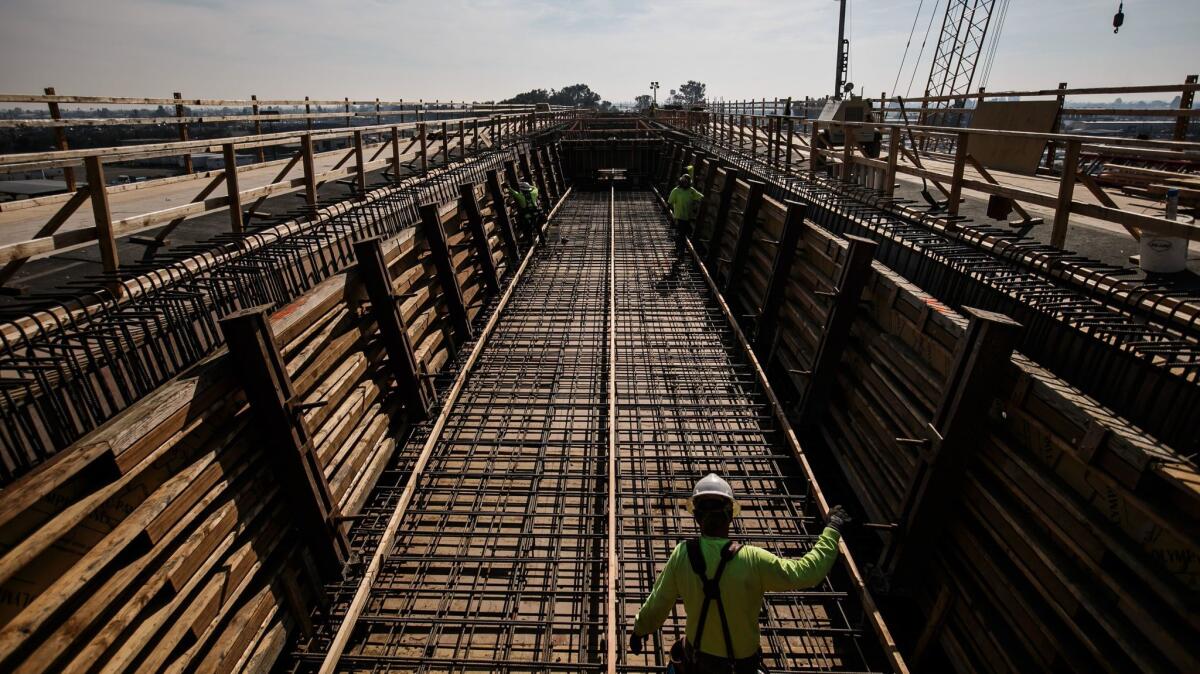Another key California bullet train executive is leaving

Another key executive at the California High-Speed Rail Authority announced his exit in recent days, the third such departure in less than a year for the troubled project.
Jon Tapping, the agency’s director of risk management since 2012, has been charged with analyzing technical, schedule and cost issues facing the $64-billion, Los Angeles-to-San Francisco system. He reports directly to the rail authority board.
Pressure on the bullet train project has been growing for years, with multibillion-dollar cost overruns, construction delays, contracting disputes and ongoing legal issues.
In confirming the latest departure, rail spokeswoman Lisa Marie Alley said simply: “Mr. Tapping is retiring after 35 years in state service.” He is expected to stay on the staff until November, she said.
The project now finds itself without a permanent chief executive, chief operating officer and risk manager — three critical positions as the rail authority works on its new business plan, scheduled for release early next year. That plan will lay out how the system’s initial operating segment, from San Jose to south of Wasco, can be built using available funds.
The project’s former chief executive, Jeff Morales, left in June. His deputy, Dennis Trujillo, departed late last year.
Morales was temporarily replaced by the agency’s counsel, Thomas Fellenz. According to Alley, the rail authority is close to hiring an executive search firm to find Morales’ successor.
After Trujillo left, Tapping temporarily took over his responsibilities under the new title of chief operating officer.
Turnover among lower-level employees as well has made it difficult for the authority to remain fully staffed, according to a manager who was not authorized to speak publicly about personnel matters. An internal survey taken earlier this year, which was obtained by The Times, found that morale problems had grown worse in each of the last three years.
“There is no stability,” the manager said. “The office is in chaos every day.”
Follow me on Twitter @rvartabedian
More to Read
Sign up for Essential California
The most important California stories and recommendations in your inbox every morning.
You may occasionally receive promotional content from the Los Angeles Times.











